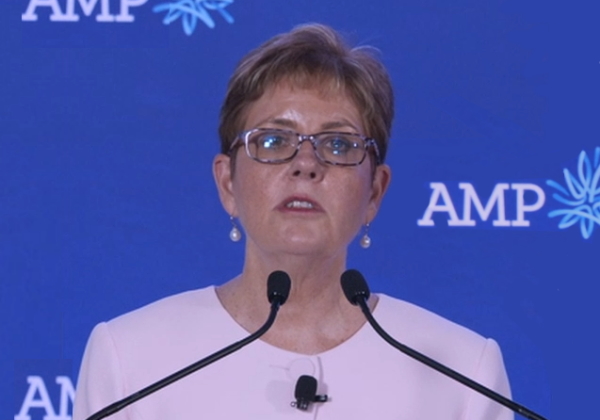
AMP group CEO Alexis George
In its push to be a modern, IT-driven bank, AMP Bank stopped issuing cheques last year and also stopped offering paper applications for certain products.
More than 70 per cent of deposit accounts were opened by digital origination and the bank said it is exploring a direct mortgage offering with potential partners.
It is investing in technology to enhance the loan origination process and reduced the average time to conditional home loan approvals from 6.2 days to 5.3 days through last year. Sixty per cent of loans were approved by its auto credit decisioning system – 75 per cent more than the previous year.
The bank increased its technology spend by 43.8 per cent, as it continues “to streamline the origination process and improve the experience for customers and brokers”.
AMP Bank released is full-year 2021 financial results yesterday, reporting a net profit of A$153 million – an increase of 37.8 per cent over the previous year.
The bottom line was boosted by a $26 million release of expected credit loss provisions, compared with a $31 million charge in 2020.
Stay Ahead. Stay Informed.
Concise. Candid. Provocative.
Get the daily banking news that matters from the industry's most experienced insiders.
Excluding these provisioning changes, 2021 net profit was $140 million, compared with 2020 profit of $137 million – a 2 per cent difference.
Net interest income rose 2 per cent to $399 million and fee and other income rose 40 per cent to $14 million.
The net interest margin rose year-on-year from 1.59 per cent to 1.62 per cent. The bank said the higher margin was due to lower funding and deposit costs.
However, NIM declined from 1.71 per cent in the June half to 1.53 per cent in the December half as “the competitive lending environment continued to place pressure on revenue margins”.
The bank expects NIM to be around 1.5 per cent in the current year.
“Controllable” costs were down 1.6 per cent to $126 million and the cost-to-income ratio was unchanged at 39.4 per cent.
The residential mortgage book grew 7.7 per cent to $21.7 billion and deposits grew 10.4 per cent to $17.8 billion. Mortgage sales picked strongly in the December quarter, at twice system growth.
AMP chief executive Alexis George said the investment in technology was paying dividends, with the bank selling through a wider range of brokers. Broker originated loans rose from 84 per cent in 2020 to 90 per cent in 2021.
George said the bank maintained the quality of its book, despite the strong growth. Mortgages in arrears by 90 days or more were 50 basis points of the book – down from 62 bps in 2020.
And the average loan to loan-to-valuation ratio remained steady at 67 per cent.
The AMP group made a loss of $252 million last year, after a number of one-off items including remediation, transformation and demerger costs and balance sheet impairments. The bank contributed close to half the group’s underlying earnings of $356 million.